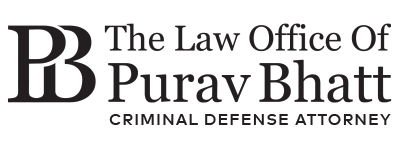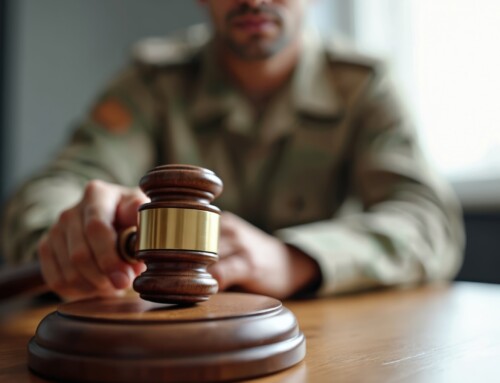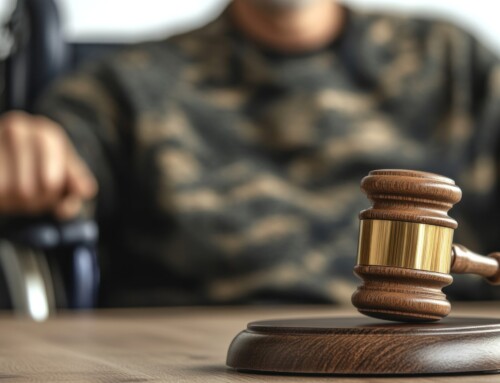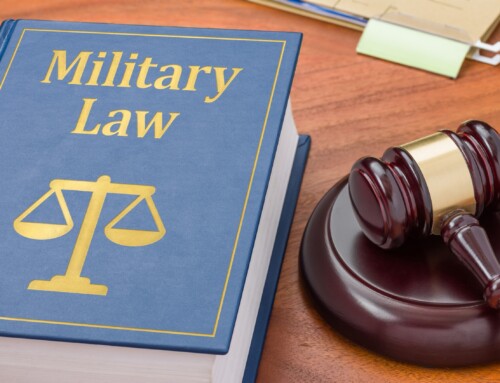Facing an accusation of sexual assault within the armed forces is an incredibly serious and complex situation that demands immediate and careful attention. The military justice system operates under unique rules and procedures, making it essential to act swiftly by securing a skilled military defense attorney, safeguarding all relevant evidence, and fully understanding your legal rights. This article provides crucial guidance from an experienced military defense lawyer on what steps to take if you find yourself accused of sexual assault in the armed forces—and how to protect your rights and your future throughout the process.
If you have been accused of sexual assault while serving in the U.S. Armed Forces, the consequences can be life-altering, from the loss of your career and benefits to incarceration and permanent damage to your reputation. At such a critical moment, you need more than general legal guidance—you need a defense strategy informed by a deep understanding of the Uniform Code of Military Justice (UCMJ), military court procedures, and the unique disciplinary culture of the armed forces.
At The Law Office of Purav Bhatt, our military defense attorneys possess the experience and legal insight required to defend service members facing UCMJ violations, including allegations of sexual assault, across all branches of the military. Led by seasoned Chicago military defense lawyers Purav Bhatt and Anthony Villalobos, our team offers personalized and aggressive representation in court-martial trials, Article 32 hearings, administrative separation boards, and military investigations. We are committed to preserving your rights, your record, and your future.
Do not delay—early legal intervention can make the difference between conviction and dismissal. Call us today at 773-791-9682 or visit us online to schedule a confidential consultation. Let us help you confront these charges with the strength and clarity your defense demands.
👉Also Read: What Are the Consequences of a Military Assault Conviction and Why You Need a Military Defense Attorney
Immediate Steps to Take After an Accusation
If you are accused of sexual assault, taking immediate and strategic action is essential. The first steps you take following the accusation can significantly influence the outcome of your case. Securing experienced legal representation, preserving evidence, and avoiding self-incrimination are fundamental to protecting your rights and building a strong defense.
Contacting a Military Defense Lawyer
Promptly engaging a skilled military defense attorney is critical. Early legal intervention offers several key advantages:
- Protection of Your Rights from the Outset: An experienced military defense lawyer understands the complexities of the Uniform Code of Military Justice (UCMJ) and ensures your constitutional and procedural rights are safeguarded from the beginning.
- Strategic Influence on the Investigation: Early legal representation can shape the trajectory of the investigation, potentially influencing how evidence is interpreted or whether charges are filed at all.
- Focused and Independent Advocacy: A civilian military defense attorney is not limited by the internal obligations of active-duty Judge Advocates. This allows for dedicated, client-focused representation tailored to your defense.
Preserving Evidence and Identifying Witnesses
Preserving evidence and identifying supportive witnesses as early as possible can strengthen your case. Consider the following steps:
- Maintain a Record of Events: Document all relevant details, including dates, conversations, communications, and interactions related to the allegation. Written records can be vital in establishing credibility and providing context.
- Identify and Approach Witnesses Promptly: Locate individuals who were present during key moments or who can testify to your character and behavior. Early contact with witnesses can secure their statements before memories fade or perceptions are influenced.
- Use Witness Testimony to Support Your Narrative: Testimonies that align with your account of events can be instrumental in corroborating your defense during investigations or trial proceedings.
Avoiding Self-Incrimination
Do not speak with investigators, commanders, or any party involved in the investigation without first consulting your attorney. Statements made during preliminary questioning can later be used against you, even if made with good intentions.
- Exercise Your Right to Remain Silent: Politely assert your legal right to remain silent until your attorney is present. This is not an admission of guilt but a critical measure to protect your legal interests.
Understanding Your Legal Rights Under Military Law
Service members accused of sexual assault are entitled to specific legal protections under the Uniform Code of Military Justice (UCMJ). These rights are designed to ensure due process and a fair trial, both of which are essential to safeguarding your future, maintaining your reputation, and preserving career-critical credentials such as a security clearance. A thorough understanding of these rights is critical to building an effective legal defense.
Right to Remain Silent
The right to remain silent is a cornerstone of military and civilian legal systems. Under Article 31(b) of the UCMJ, service members cannot be compelled to make statements that may be self-incriminating.
- Exercising this right protects you from unintentionally providing information that could be misinterpreted or used against you.
- You are not obligated to answer questions from law enforcement, commanders, or investigators without the presence of legal counsel.
Right to Legal Representation
Every service member accused of a crime under military law has the right to legal representation, both during the investigation and throughout the court-martial process.
- A qualified military criminal defense lawyer ensures that your rights are preserved and that no procedural errors or unlawful questioning occur.
Right to a Fair Trial
Under the UCMJ, every accused service member is presumed innocent until proven guilty. You are guaranteed a fair trial that includes:
- The right to be judged by an impartial panel (jury) composed of military members.
- The right to confront witnesses, cross-examine accusers, and present exculpatory evidence.
- The right to call witnesses in your defense and to have evidence reviewed objectively by the court.
Importantly, the government bears the burden of proof beyond a reasonable doubt, and any violation of due process—such as unlawful command influence or denial of fair access to evidence—can undermine the legitimacy of the proceedings.
Safeguard Your Rights from the Start
Understanding and asserting your rights from the outset is crucial. Early legal intervention helps to identify procedural missteps, address unlawful conduct, and uphold the principles of justice embedded in military law. Whether through appointed military counsel or a civilian defense attorney, professional legal support is essential to ensuring that your case is handled with fairness, precision, and integrity.
👉Also Read: How to Choose the Right Military Criminal Defense Attorney: Key Questions
The Investigative and Court-Martial Procedures
Understanding the investigative and court-martial procedures is essential for effectively navigating the military justice system. Each stage—from the initial inquiry to the formal trial—plays a pivotal role in building the case and determining the validity of the charges brought against you. Knowledge of these steps empowers service members to make informed decisions and assert their rights throughout the process.
Initial Investigation
The initial investigation focuses on collecting physical evidence, interviewing witnesses, and assessing the credibility of the allegations. This phase is foundational and can significantly shape the trajectory of the case for both the prosecution and the defense.
- Investigators evaluate the substance of the allegations and may involve military law enforcement such as CID, NCIS, or OSI.
- Defense attorneys may begin developing strategies early on by uncovering inconsistencies in the accuser’s statements or identifying potential motives for false allegations.
- Timely legal counsel can help preserve exculpatory evidence and ensure that procedural rights are not violated during the investigation.
Article 32 Hearing
An Article 32 preliminary hearing serves as the military equivalent of a civilian grand jury proceeding. It is used to determine whether there is probable cause to believe a crime was committed and that the accused committed it.
- This hearing allows both sides to present and challenge evidence, question witnesses, and make legal arguments.
- While the threshold for probable cause is relatively low—requiring only a reasonable belief that a crime occurred—the hearing is a vital opportunity for the defense to preview the government’s case and expose weaknesses in the evidence.
- The preliminary hearing officer (PHO) submits a report and recommendation, which the convening authority considers when deciding whether to proceed to court-martial.
Court-Martial Trial
A court-martial trial is a formal judicial proceeding under the Uniform Code of Military Justice (UCMJ) in which charges are adjudicated before a military judge and, in many cases, a panel (jury) of service members.
- The accused is presumed innocent until proven guilty beyond a reasonable doubt.
- The defense may present evidence, call witnesses, and cross-examine the prosecution’s witnesses.
- Service members are entitled to a fair trial, including the right to an impartial jury composed of officers of equal or greater rank.
Key elements of the trial process include:
- Panel Composition: The jury must consist of service members of the same or higher rank as the accused, selected in accordance with military regulations.
- Verdict Requirements: A two-thirds majority vote is required for a conviction in most cases. In more serious charges, such as those punishable by death, a unanimous verdict is required.
- Sentencing Phase: If convicted, the sentencing phase allows for the presentation of mitigating and extenuating evidence to potentially reduce penalties.
- Appeals Process: Adverse rulings or convictions may be subject to appeal through military appellate courts, ensuring an additional layer of review for potential legal errors or injustices.
Why Legal Representation Matters
Because each phase of the military justice process presents complex legal challenges, having experienced legal representation—preferably a civilian military defense attorney with deep familiarity in court-martial defense—is essential. Early intervention, strategic case development, and procedural vigilance can make a significant difference in the outcome of your case.
Common Defenses in Military Sexual Assault Cases
Service members facing sexual assault allegations under the Uniform Code of Military Justice (UCMJ) have several potential defenses available to challenge the charges. Effective defense strategies may involve demonstrating consensual conduct, disproving false allegations, or identifying procedural violations that compromise the integrity of the proceedings.
Demonstrating Consent
One of the most common and effective defenses in sexual assault cases is establishing that the alleged encounter was consensual. Demonstrating consent involves presenting credible evidence that both parties willingly participated in the activity.
Key elements may include:
- Text messages, emails, or social media communications indicating mutual interest or agreement.
- Eyewitness testimonies that corroborate a consensual relationship or behavior.
- Behavioral patterns or past interactions between the parties that support a non-coercive context.
Because the burden often shifts to the prosecution to prove the absence of consent beyond a reasonable doubt, clear and compelling documentation can be pivotal in undermining the allegations.
Challenging False Allegations
Another core strategy involves exposing the allegations as false or exaggerated. This defense hinges on undermining the credibility of the accuser and the reliability of their statements.
Common approaches include:
- Investigating the accuser’s motives, such as personal retaliation, miscommunication, or a desire to avoid disciplinary consequences for their conduct.
- Highlighting inconsistencies in the accuser’s narrative across multiple statements or interviews.
- Presenting alibi evidence or other documentation that contradicts the timeline or details of the accusation.
A well-prepared legal team will scrutinize all aspects of the accuser’s story and aggressively pursue any leads that point to a fabrication or misunderstanding.
Addressing Due Process Violations
Due process is a cornerstone of military justice. Any failure by the government to follow established legal procedures may constitute grounds for dismissal or reduction of charges. Common violations include:
- Inadequate legal representation provided during interrogation or early investigative stages.
- Failure to properly advise the accused of their Article 31(b) rights (similar to Miranda rights).
- Unlawful command influence, which can bias the proceedings and violate the accused’s right to a fair trial.
- Improper collection or handling of evidence, which may warrant exclusion of critical information at trial.
Defense counsel can file motions to suppress evidence, seek dismissals, or request remedial action if procedural safeguards were compromised. These legal remedies are essential to upholding the fairness and legitimacy of the court-martial process.
Potential Consequences of a Conviction
A conviction for sexual assault under the Uniform Code of Military Justice (UCMJ) can result in life-altering consequences. The penalties extend far beyond the courtroom and may permanently affect a service member’s military career, personal freedom, and civilian life. The most common consequences include dishonorable discharge, confinement, financial penalties, and mandatory registration as a sex offender.
Dishonorable Discharge
A dishonorable discharge is the most severe punitive discharge under military law. It is reserved for the most egregious offenses and carries serious collateral consequences:
- Loss of all military benefits, including retirement pay, medical care, and education assistance.
- Stigmatization and reputational harm, which can hinder future employment and civilian reintegration.
- Ineligibility for most veterans’ benefits, including VA loans and healthcare services.
A dishonorable discharge remains on a service member’s permanent record and can have lasting repercussions in both professional and personal contexts.
Confinement and Financial Penalties
Convictions under the UCMJ may result in significant periods of incarceration, often reflecting the severity of the charges. Depending on the specific circumstances of the case, penalties may include:
- Confinement for several years or even decades, particularly in cases involving aggravated sexual assault or multiple charges.
- Substantial fines or forfeiture of pay and allowances, which can create ongoing financial hardship.
These punitive measures can drastically impact a service member’s long-term financial stability and personal freedom.
Mandatory Sex Offender Registration
A conviction for sexual assault typically requires mandatory registration as a sex offender, both during confinement and after release. This designation imposes extensive restrictions on everyday life, including:
- Severe limitations on where one can live or work, particularly near schools, parks, or other protected areas.
- Ongoing monitoring and reporting requirements, sometimes for life.
- Stigma and social isolation, which can make reintegration into society extremely difficult.
Sex offender registration is public and can severely hinder employment, housing, and personal relationships.
Importance of Prompt Legal Assistance
Securing legal representation as early as possible is critical when facing allegations of sexual assault under the Uniform Code of Military Justice (UCMJ). Prompt legal intervention not only helps protect your rights but also strengthens your ability to mount a strategic and effective defense. Early and decisive action can be the key to preserving your career, reputation, and future.
Early Legal Intervention
Engaging a military attorney at the earliest stage of the investigation can profoundly influence the trajectory of your case. Timely legal assistance allows your attorney to:
- Advocate on your behalf during preliminary investigations, often before formal charges are filed.
- Ensure your constitutional and procedural rights are protected, preventing unlawful interrogations or evidentiary issues.
- Identify and preserve exculpatory evidence, which might otherwise be overlooked or lost.
Early intervention often provides the best opportunity to challenge the basis of the allegations and can sometimes lead to a case being dismissed or charges not being filed.
Building a Strong Defense
Experienced military lawyers, who focus their practice on military criminal defense, bring in-depth knowledge of the military justice system and years of experience handling complex sexual assault cases. A seasoned attorney can:
- Scrutinize the prosecution’s evidence for inconsistencies, procedural errors, or constitutional violations.
- Develop a comprehensive defense strategy, including witness interviews, expert testimony, and forensic review.
- Challenge unreliable or weak allegations while ensuring that all favorable facts are brought forward.
A strong defense does not just react to the prosecution—it proactively shapes the narrative and evidentiary landscape of the case.
Protecting Your Future
Beyond the immediate legal ramifications, a sexual assault accusation can jeopardize your military career, benefits, and civilian opportunities. Prompt legal representation ensures:
- Your career and reputation are vigorously defended from the outset.
- You have professional guidance at every step, reducing the risk of missteps that could harm your case.
- You retain the best possible chance of avoiding conviction, discharge, or long-term damage.
Early legal support serves not only as a defense mechanism but also as a safeguard for your livelihood and long-term future.
👉Also Read: DUI and Drug Offenses in the Military: Consequences and Legal Defenses Explained
Protect Your Future—Contact The Law Office of Purav Bhatt Today
If you are a service member facing allegations of sexual assault, the decisions you make in the first hours and days following the accusation can dramatically impact your future. You do not have to navigate the complexities of the military justice system alone. At The Law Office of Purav Bhatt, we provide experienced, strategic, and confidential legal representation designed to protect your rights, your career, and your reputation.
Attorneys Anthony Villalobos and Purav Bhatt focus on defending service members across major military installations such as Fort Bragg, Fort Hood, and Fort Bliss. Their combined courtroom experience and in-depth understanding of military criminal law provide clients with the insight and real-world perspective necessary to build a powerful and effective defense. Whether you are under investigation, preparing for an Article 32 hearing, or facing a court-martial, we work tirelessly to preserve evidence, challenge the government’s case, and safeguard your future.
Prompt legal action is critical. Contact The Law Office of Purav Bhatt today for a confidential consultation and take the first step in mounting your defense. Empower yourself with experienced legal counsel that understands what is at stake.







